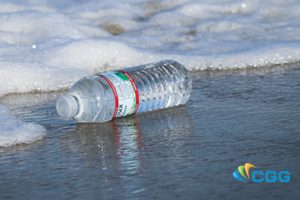 A consortium led by CGG has been selected by the European Space Agency’s Space Solutions initiative to undertake a study aimed at developing new environmental monitoring technology and services to help combat the global marine litter crisis.
A consortium led by CGG has been selected by the European Space Agency’s Space Solutions initiative to undertake a study aimed at developing new environmental monitoring technology and services to help combat the global marine litter crisis.
CGG will collaborate with Mott MacDonald, a global engineering, management and development consultancy, and Brunel University London to develop innovative new environmental monitoring solutions based on CGG’s analysis and processing of Earth observation data and leveraging its artificial intelligence models.
With their combined expertise spanning satellite remote sensing, environmental science, plastic pollution, drift modelling, mitigation measures and policy development, the consortium is strongly positioned to deliver on the study objectives.
The first 12-month phase of the study will focus on establishing the technical feasibility and commercial viability of new satellite-based services for detecting large aggregations of floating plastics to improve understanding of the sources, pathways and trends of plastic pollution in marine and coastal environments.
The study will capture the requirements of an independent group of end-users, with the objective of developing new fit-for-purpose solutions that could be implemented and demonstrated in a follow-on phase.
Sophie Zurquiyah, CEO CGG, said: “The need for innovative mapping and monitoring solutions that can play a key role in reducing the environmental impact of plastics and marine litter is more urgent than ever. We are therefore delighted to have been selected by the European Space Agency to deliver this important study. It is further proof of CGG’s recognized leadership in the field of Earth observation through our long-established Satellite Mapping group and our growing activity and reputation in the environmental domain.”
